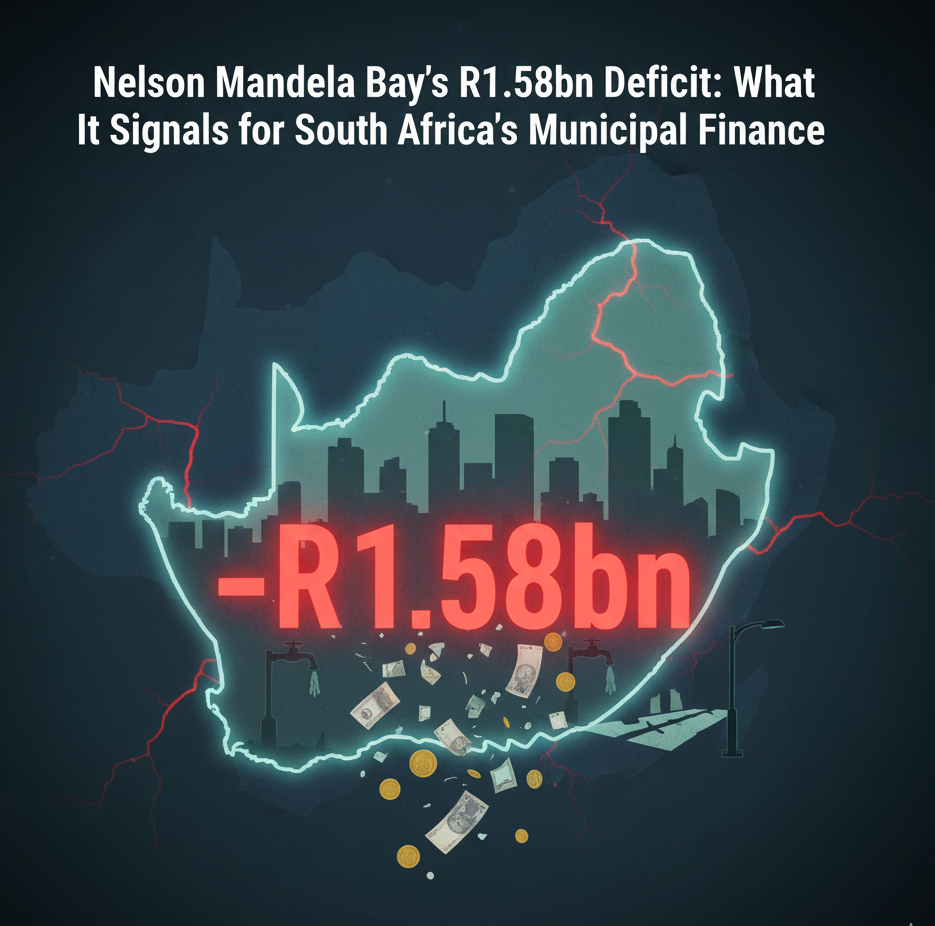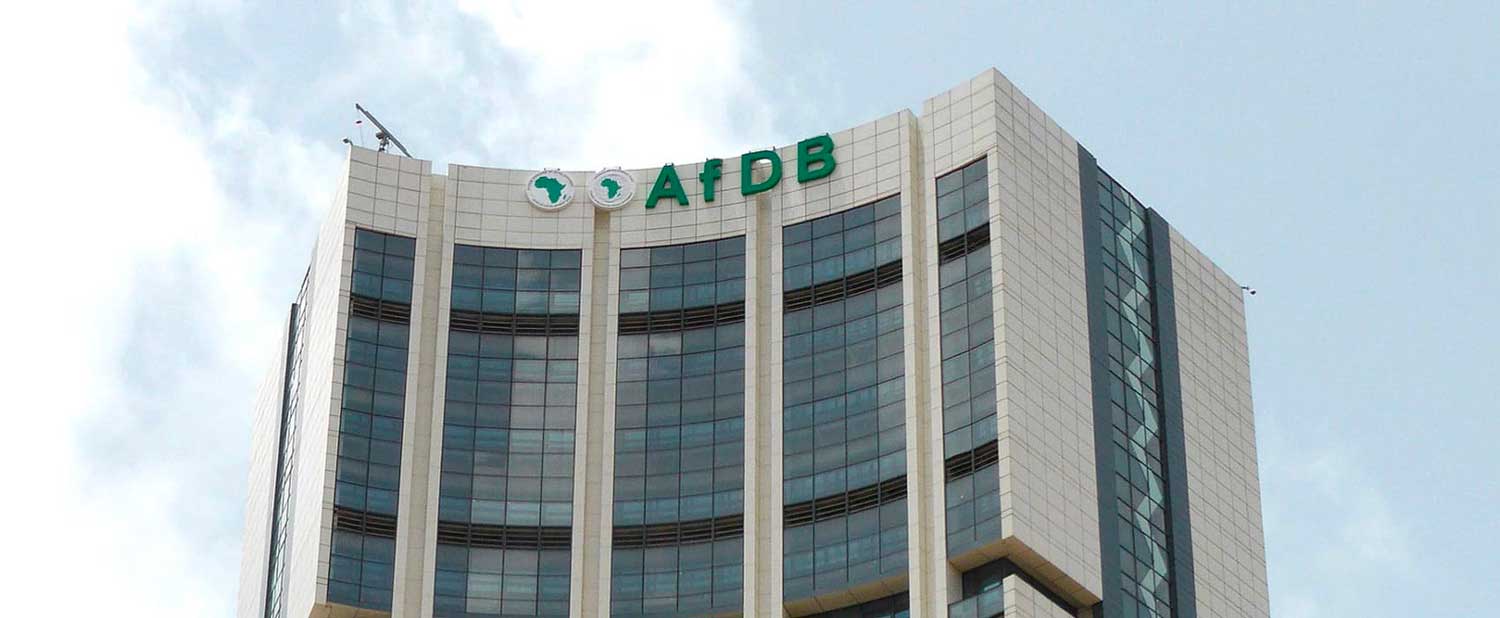Nelson Mandela Bay’s R1.58bn Deficit: What It Signals for South Africa’s Municipal Finance
Nelson Mandela Bay’s R1.58bn deficit signals more than local mismanagement: soaring water and power losses, unpaid bills, and weak collections highlight systemic municipal fragility that could spill into South Africa’s sovereign risk profile.

The Nelson Mandela Bay Metropolitan Municipality has posted an operating deficit of R1.58 billion for FY2024/25, placing it among the most fiscally stressed metros in South Africa. While the headline figure points to inefficiency, the deeper financial signals emerging from the loss are far more consequential for municipal creditworthiness and sovereign risk.
At the core of the deficit are massive revenue leakages. Non-revenue water has surged to 52.74 %, equal to nearly 68 million kilolitres lost through leaks, theft, or unbilled consumption. This translates into billions of rand in foregone revenue, well above the 20–25 % threshold considered tolerable in comparable emerging markets. Electricity losses tell a similar story: tampering and illegal connections have pushed distribution losses to 26.81 %, rising from 26.34 % the previous year. By comparison, efficient utilities operate below 10 %, with Johannesburg and Cape Town averaging 12–14 %. These figures highlight not just technical inefficiencies but systemic governance failures that weaken the municipality’s ability to convert assets into sustainable cash inflows.
Expenditure-side pressures compound the crisis. Overtime liabilities remain high, reflecting weak payroll discipline, while a declining tariff collection rate restricts cash receipts. Liquidity stress is already visible: the municipality failed to pay a modest R9.6 million telecommunications bill, leading to the disconnection of ward and call-centre lines. For financial analysts, such an event signals a breakdown of the working capital cycle. Even small creditors are left unpaid, a classic red flag of tightening liquidity and growing default risk.
The fiscal weakness translates directly into underperformance on development goals. Only 53 % of service delivery targets were achieved during the year, indicating that spending multipliers are low and efficiency is deteriorating. This erodes public trust, raises political risk, and signals that increased expenditure is not producing proportional socio-economic outcomes.
For capital markets, the implications are sobering. Municipal finances are increasingly seen as contingent liabilities for the sovereign balance sheet. Rating agencies track metros on cost-recovery ratios, liquidity buffers, and debt-servicing capacity; Nelson Mandela Bay’s profile now suggests an elevated likelihood of credit downgrades or higher borrowing spreads. With South Africa’s 10-year government bond (JSE: R186) already yielding above 11 % and the 2030 Eurobond (XS2015271039) trading at yields above 8 %, further fiscal stress at metro level risks amplifying sovereign spreads. South African CDS (JP: SOVCDS5Y) have already widened in recent months, reflecting investor anxiety over fiscal slippage.
The signals are not confined to Nelson Mandela Bay. Other municipalities have also struggled with arrears to Eskom and water boards, suggesting a systemic problem in sub-sovereign finance. If one metro’s crisis metastasises, investors may interpret this as evidence of structural fragility across the municipal sector, eroding confidence in South Africa’s municipal bond market. Johannesburg’s prior local bond issuance (JSE: ZAG000018505) demonstrated how investor appetite quickly sours when fiscal governance is in doubt.
The broader message is clear: Nelson Mandela Bay’s deficit is not just an isolated budget failure. It signals liquidity stress, weak cost-recovery, and low productivity of fiscal spending, all of which bleed into the national risk profile. For lenders and DFIs, it undermines the bankability of municipal infrastructure projects. For policymakers, it raises the likelihood of bailouts that crowd out national capital spending. For investors in South African sovereign risk (NYSE: EZA, iShares MSCI South Africa ETF), it provides another reason to demand higher yields or retreat altogether.
Unless structural reforms address water and electricity losses, enforce tariff collection, and rein in personnel costs, Nelson Mandela Bay risks sliding into a debt-service and delivery spiral: widening deficits, falling collections, deeper inefficiencies, and eventual insolvency. The market will read such a trajectory not as a local anomaly but as a warning of systemic sub-sovereign fragility. In effect, Nelson Mandela Bay has become a case study in how municipal mismanagement can amplify sovereign risk in emerging markets.





